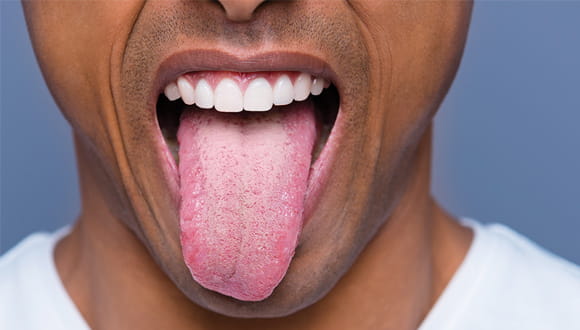Besides accidentally hitting your funny bone or stubbing your big toe on the leg of a coffee table, biting your tongue can be one of the most annoyingly painful mishaps we often face. The tongue makes chewing, swallowing and talking possible, so when you bite your tongue, it can be very difficult (and very painful) to function normally.
But why does something so minor hurt so badly? Here we explain why biting your tongue hurts so much, and what you can do about it when it happens — again.
What makes biting your tongue so painful?
Although the tongue is a muscle, it's not just any muscle — your tongue is highly sensitive and one of the most intricate and complicated parts of the human body. It contains around 8,000 motor units, which give it the ability to move with impressive precision and flexibility. Several nerves and muscle fibers also make up the tongue's anatomy, adding to the tongue's sensory abilities.
The bumps on your tongue are called papillae, and beneath the papillae are your taste buds. Each taste bud contains thousands of cells that connect directly to the brain stem's nerves. This means that the tongue's perception of taste, temperature, texture and, unfortunately, pain is highly acute — ouch.
Interestingly, the tongue is the most exposed muscular organ out of more than 600 muscles in the body — and there's little protecting it from injury. So, if you do find yourself in a tongue-biting situation, you'll want to make sure to treat it properly.
What should you do if you bite your tongue?
Depending on how severely you bite your tongue, healing time and level of treatment can vary. If there's major tissue damage or continuous bleeding, you should see a doctor. However, in most instances, you can treat your tongue bite at home using these steps:
- Start by washing your hands and putting on gloves.
- Rinse your mouth with water to clear any blood or debris.
- Apply cloth-wrapped ice cubes or a cold compress near the injury (not directly on it) to reduce swelling.
- If your tongue is bleeding, apply pressure with a sterile piece of cloth or a gauze pad.
- After each meal, keep the injury clean by rinsing out your mouth with a saltwater solution: Mix one cup of water with one teaspoon of salt.


